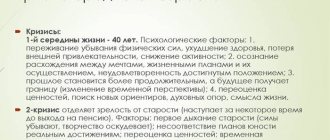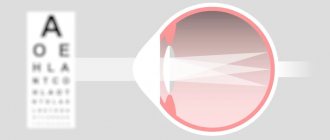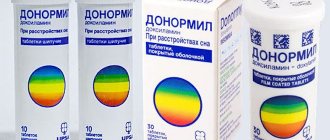Today we will talk about an amazing hormone called the “sleep hormone” and the “youth hormone.” How melatonin affects sleep and other important processes, whether it can be obtained from food, how to take melatonin in tablets and whether it is useful for the prevention of coronavirus infection - all this and much more in our article today.
Dmitry GoncharJune 19, 20215 min read 34
Melatonin is a hormone N-acetyl-5-methoxytryptamine , which is naturally synthesized by almost all living organisms, both animals and plants. According to scientists, the “birth” of melatonin on our planet occurred about 3.5 billion years ago, since this substance was discovered in the structure of ancient cyanobacteria.
The hormone melatonin is produced mainly (80%) by the pineal gland. This organ is “unofficially” also called the third eye: in a human embryo, the pineal gland first develops as an ordinary eye, but subsequently becomes an organ that resembles a fir cone in its shape. This “bump” produces melatonin - or rather, first serotonin (during the day), from which melatonin is synthesized (at night). The main currently well-known function of the pineal gland is the regulation of sleep-wake cycles or circadian rhythms .
The remaining 20% of melatonin is produced in special cells located in the retina, prostate gland, ovaries, bronchi, lungs, digestive tract, kidneys, pancreas, etc. In addition, in 1974, Soviet scientists I. Kvetnoy and N. Raichlin proved that that melatonin is also produced in certain blood cells - lymphocytes and eosinophils. But only melatonin that is produced in the pituitary gland has an effect on circadian rhythms .
Melatonin is a sleep hormone. How does it work?
For the first 20 years after the discovery of melatonin, it was considered exclusively a hormone that regulates circadian rhythms - daily and seasonal (this action is called chronobiotic). Melatonin for sleep has been found to:
- helps fall asleep;
- provides a calm, “healthy” sleep, during which the body naturally rests and restores strength.
Later, other beneficial properties of melatonin were discovered:
- antioxidant effect . Melatonin absorbs special unstable molecules - free radicals that damage the cell membranes of tissues and organs, leading to a weakening of the body's defenses and the development of cardiovascular diseases and tumors. “Cleansing” the body from free radicals, melatonin at the same time removes them from the nervous system, protecting a person to the best of his ability from Parkinson’s and Alzheimer’s diseases;
- immunomodulatory effect . The hormone is able to restore damaged cells, preventing various diseases, including the development of tumors (including malignant ones) and inhibiting the spread of metastases in existing cancers. It is now known that synthetic melatonin reduces the toxic effects of drugs used for chemotherapy for cancer;
- antidepressant effect , preventing the development of certain mental illnesses;
- slowing down the aging process - it is for this property that helps increase life expectancy that melatonin is also called the “hormone of youth”;
- regulation of the function of the endocrine system ;
- normalization of body temperature .
Melatonin is also useful for women's health . A woman’s reproductive system works in cycles, and these cycles are regulated, among other things, by hormones produced by the pituitary gland and hypothalamus. With melatonin:
- endocrine brain cells are synchronized;
- the processes of egg maturation and ovulation are normalized;
- pain during menstruation decreases.
Many women who work at night experience irregularities in their menstrual cycle, which can lead to serious problems, including infertility. In this case, melatonin is able to regulate the menstrual cycle.
Melatonin for hypertension helps stabilize the patient's condition. It affects the release of certain other hormones and other substances that change the activity of the nervous system. Thus, melatonin is able to reduce the severity of fluctuations in blood flow to the brain, as well as suppress the synthesis of the “stress” hormone norepinephrine - all this ultimately helps to avoid pressure surges.
The effect of melatonin on the nervous system is also difficult to overestimate: during full sleep, which is impossible with melatonin deficiency, new neural connections are formed between brain cells - this significantly improves memory and learning ability.
During the daytime, melatonin acts on the nervous system as a “balancer”: each of us knows for ourselves that having slept well, we become calmer and less hot-tempered.
Melatonin and coronavirus
The hormone melatonin is included in many successful treatment protocols for COVID-19 - including it was used in the treatment of the previous US President Donald Trump for this disease.
Last May, an article published in the medical journal Frontiers in Medicine recommended taking melatonin for older patients with COVID-19, especially those with underlying chronic conditions. The dosage of melatonin for such cases is recommended from 3 mg to 10 mg , and the effects are called strengthening the immune response, normalizing sleep, and antioxidant action.
The authors of the article also recommend taking melatonin to people at high risk of contracting COVID-19, including medical workers.
In October 2021, a report on a study of the effect of melatonin in severe COVID-19 was published in the electronic scientific library medRxiv (800 cases of the disease were reviewed). The study found that patients with high levels of “natural” melatonin, as well as those receiving it in the form of supplements, were significantly more likely to survive and recover than people with a diagnosed melatonin deficiency.
In November 2021, the journal Diseases published the results of a joint study by Canadian and Argentine scientists showing that older patients with melatonin deficiency have a more severe illness from COVID-19. Supplements with adequate dosages of melatonin:
- significantly reduce the risk of developing an “aggressive” form of the disease;
- support the effect of the coronavirus vaccine.
In February 2021, the journal Melatonin Research published the results of a study conducted by Brazilian scientists. It is reported that people with high levels of melatonin in the blood become infected much less frequently and tolerate the disease easily . The study authors recommend sprays and nasal drops containing melatonin as an effective means of preventing COVID-19.
It is known that in order to enter the human body, the SARS-CoV-2 virus, the causative agent of COVID-19, requires communication with the ACE2 enzyme, the receptors of which are located on the surface of lung cells. Having contacted ACE2, the coronavirus enters the cell, where it begins to multiply (viruses do not multiply outside cells).
Melatonin reduces the number of free ACE2 receptors with which the coronavirus binds. Therefore, as a result, only a small number of lung cells are affected, due to which COVID-19 occurs in a mild form.
In addition, the “sleep hormone” is capable of:
- reduce inflammatory reactions at the site of “docking” of the virus with the cell;
- control the body’s immune response, which prevents the development of a “cytokine storm” – a condition that in most cases leads to the death of the patient.
When is melatonin produced?
In a healthy human body, melatonin production “starts” between 20:00–22:00. If you are a night owl, the production of the sleep hormone will begin later, if you are a morning person, it will begin earlier.
The peak concentration of the substance occurs between 00:00–02:00 (again, depending on what kind of “bird” you are according to biorhythms). By 06:00–07:00, melatonin levels drop to a minimum.
As you can see, in order for melatonin to be independently produced in sufficient quantities during sleep, you will have to adhere to a healthy regimen. Read about how to establish this regimen and improve the quality of sleep in our recent article.
Read about how to establish this regimen and improve the quality of sleep in our recent article.
Melatonin: contraindications and side effects
Most people who take melatonin supplements as prescribed by their doctor are satisfied with its effectiveness. However, this hormone also has contraindications for use:
- age under 18 years;
- chronic insomnia;
- maintaining normal daily production of your own melatonin (this can be checked by passing the appropriate test);
- maintaining normal biorhythms;
- alcoholism (melatonin and alcohol cannot be combined in principle);
- diabetes mellitus (melatonin does not combine well with diabetes medications);
- liver diseases;
- epilepsy;
- autoimmune diseases;
- lymphogranulomatosis, leukemia, myeloma, lymphoma;
- the presence of transplanted organs in the body;
- pregnancy and breastfeeding.
In case of diagnosed mental disorders, malignant tumors, or reduced immunity, melatonin should be taken under the strict supervision of a doctor (he can also completely prohibit taking it).
IMPORTANT! Taking melatonin cannot be combined with taking certain medications, including corticosteroids, cyclosporine, monoamine oxidase inhibitors, etc. If you are constantly taking any medications, be sure to inform the doctor who prescribed melatonin.
Among the rather rare side effects of melatonin, there may be excessively vivid, “strange” or nightmare dreams, headaches, allergic reactions, daytime drowsiness, diarrhea, etc.
Can children take melatonin?
In the previous section, speaking about contraindications age under 18 years first on the list . In the instructions for domestically produced melatonin preparations, this is a clear “taboo”: melatonin should not be taken by children, including infants.
However, there are melatonin preparations made in the USA, which are positioned as “children’s melatonin” - for children from 3-4 years old, depending on the manufacturer. The content of the active substance in them is 1–1.5 mg per chewable tablet. In addition to melatonin, such preparations may contain magnesium and/or extracts of various medicinal plants that improve sleep quality - chamomile, lemon balm, passionflower, etc.
do not recommend giving such pills to children - unnecessary experiments can come back to haunt you in the most unexpected way, harming children's health. After all, the instruction in domestic instructions about the age of up to 18 years is given for a reason, and it is possible to establish circadian rhythms and melatonin production (if there is a diagnosed deficiency) in a child in more gentle ways, without resorting to hormonal therapy.
Melatonin and drugs that increase its production, which we mentioned in this article, can be ordered to your home using the Liki24.com targeted drug delivery service.
We wish you good health and ideal circadian rhythms!
How to effectively support the pineal gland?
First of all, you should maintain a normal daily routine. You need to fall asleep around 11 pm and sleep in the dark. Scientific research has shown that if sleep occurs in the light, then the brain receives an appropriate signal. As a result, the pineal gland believes that it is still day outside with all the ensuing negative consequences.
The study of this theory began in the city of Ivanovo. Scientists have recorded a sharp increase in the number of women who worked in a clothing factory and developed breast cancer. After conducting a set of studies, a connection was established between the health problems of female workers and working in 3 shifts in the workshop. Moreover, women who worked at night were three times more likely to develop cancer compared to seamstresses who worked during the day.
This trend suggests that normal melatonin synthesis reduces the risk of tumors. Plus, by maintaining normal levels of this hormone in adulthood, one can achieve a reduction in biological age.
In this case, a decrease in melatonin synthesis can cause:
- Cardiovascular diseases;
- Hypertension;
- Oncological diseases;
- Development of Alzheimer's and Parkinson's diseases;
- Sleep problems;
- The appearance of diabetes mellitus.
Melatonin begins to form at 6 months, when the baby becomes aware of the onset of day and night. By 12 months, the concentration of this hormone reaches its maximum in our entire life, which persists until approximately the age of ten. Melatonin levels decrease during puberty. As a result, by the age of 20, the optimal level of the hormone in question for our body is formed. Then gradually the concentration of melatonin decreases and by the age of eighty it is reduced to 0.
Factors influencing melatonin synthesis.
Increase: vitamins, reduced caloric intake.
Reduce: increased dosages of vitamins B12, caffeine, bad habits (cigarettes, alcohol), taking medications.
In the US you can find melatonin in tablets. But we recommend that you refrain from using it, since an excess of any hormone leads to the cessation of the production of your own. From this we can come to the conclusion that the best solution to the problem is to create conditions for the body to independently produce melatonin. The pineal peptide, Endoluten, copes well with this task.










